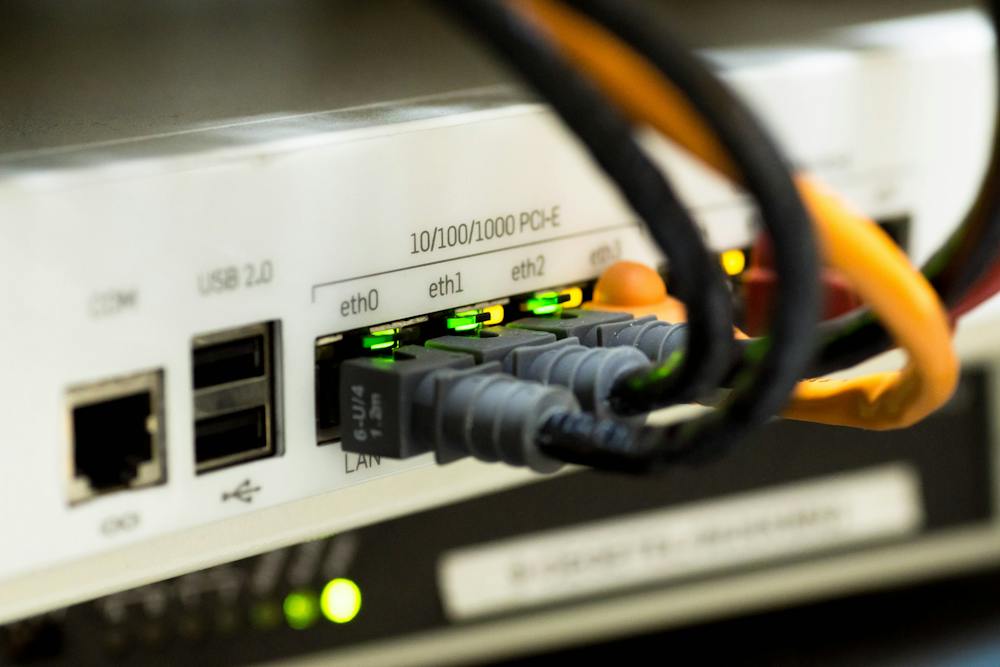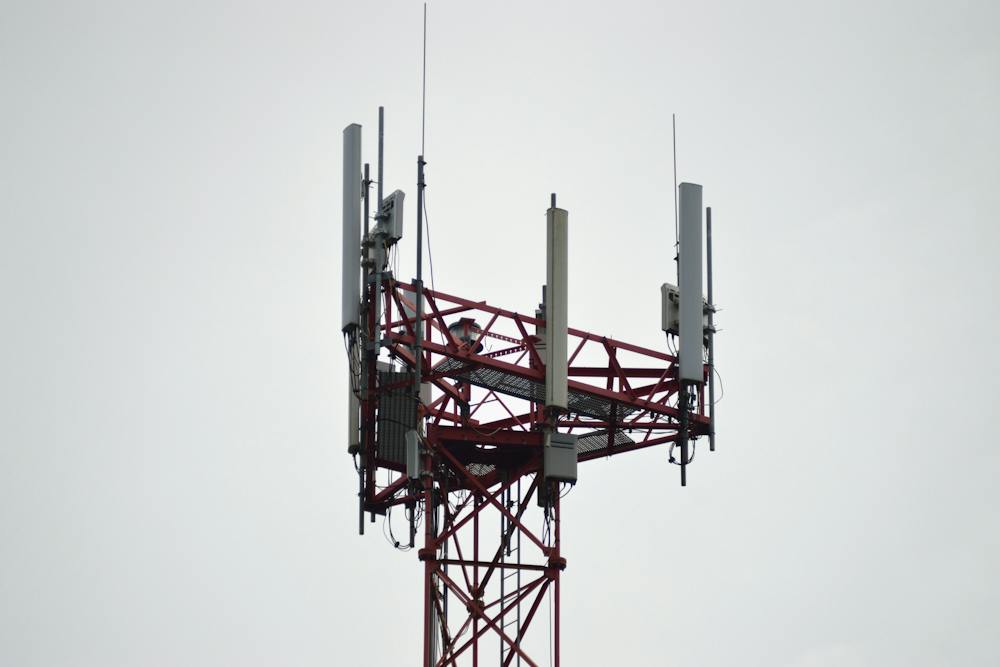How Are Internet Service Providers Involved in Cases of Indecent Images?

How Are Internet Service Providers Involved in Cases of Indecent Images?
Internet service providers (ISPs) play a crucial role in addressing and dealing with cases of indecent images. Understanding their involvement is essential in addressing this prevalent issue. The following sections shed light on the role of ISPs and the challenges they face in handling cases related to indecent images.
ISPs have a responsibility to ensure a safe and secure online environment for their users. This includes detecting and addressing cases involving indecent images. They utilise various methods to identify and report such content to the appropriate authorities.
ISPs use advanced technologies and algorithms to monitor and detect the presence of indecent images on their networks. This includes utilising software that analyses digital footprints, scanning for explicit content, and detecting patterns associated with such material. ISPs also rely on user reports and collaboration with law enforcement agencies to identify and remove inappropriate content.
ISPs have legal obligations when it comes to handling cases of indecent images. They are required to comply with local laws and regulations regarding the reporting, removal, and blocking of explicit content. Failure to adhere to these legal responsibilities may result in penalties and legal repercussions for ISPs.
To combat the issue of indecent images effectively, collaboration between ISPs and law enforcement agencies is crucial. ISPs assist in investigations by providing requested information, such as user details and connection logs, to aid in identifying perpetrators and victims. Data retention and sharing policies are in place to facilitate this cooperation while balancing privacy concerns.
ISPs support investigations by preserving relevant data and retaining records of user activities, if required. This information can assist law enforcement agencies in tracing the origin of indecent images and identifying those involved. ISPs play a vital role in aiding the legal process and ensuring that the necessary evidence is available for effective prosecution.
ISPs adhere to specific data retention and sharing policies to ensure compliance with legal requirements. These policies govern the duration for which user data is retained, the circumstances under which it can be shared with authorities, and the measures taken to protect user privacy. ISPs strive to maintain a balance between preserving evidence and safeguarding user information.
ISPs employ various technological measures to address the issue of indecent images and promote online safety. Content filtering and blocking systems are deployed to prevent the access and dissemination of explicit material. Education and online safety initiatives are also undertaken to raise awareness among users and promote responsible internet usage.
ISPs implement content filtering and blocking mechanisms to prevent the availability of indecent images on their networks. These systems help restrict access to explicit content and prevent its distribution. ISPs work towards continuously improving these technologies to provide a safer online environment for their users.
ISPs recognise the importance of education in combating indecent images. They collaborate with organisations and experts to develop and promote online safety initiatives. These programs aim to educate users about the risks associated with such content, provide guidelines for reporting and dealing with indecent images, and promote responsible online behaviour.
Addressing indecent images poses several challenges for ISPs, mainly relating to the balance between privacy and safety concerns. Striking the right balance between protecting user privacy and assisting law enforcement agencies can be a complex task.
ISPs also face technical and legal challenges in accurately identifying and removing explicit content in a rapidly evolving online landscape. Nonetheless, ISPs are committed to mitigating these challenges and working towards creating a safer online environment for all users.
Understanding the Role of Internet Service Providers in Cases of Indecent Images

Understanding the role of Internet Service Providers (ISPs) is essential in cases involving indecent images. ISPs are pivotal for providing internet access to users, giving them the capability to monitor and regulate online activities.
Crucially, ISPs can effectively identify and report illegal activities such as the distribution or viewing of indecent images. Moreover, ISPs collaborate closely with law enforcement agencies by supplying crucial information and offering assistance during investigations.
Recognising the significance of ISPs’ involvement in these cases is vital for maintaining the safety and security of online spaces and ensuring individuals are held responsible for their actions.
How Do Internet Service Providers Detect Indecent Images?
Internet Service Providers (ISPs) have developed various methods to detect and combat indecent images online. So, how do they do it?
- Automated Systems: ISPs rely on advanced software that scans all files and data flowing through their networks. This software looks for specific indicators that may suggest the presence of indecent imagery.
- Hash Matching: ISPs maintain databases of known illegal images. By comparing file hashes, ISPs can identify matches and take appropriate action against the offending content.
- User Reporting: ISPs also encourage users to report potentially illegal content they come across online. This helps ISPs investigate and respond to such incidents promptly.
- Collaboration: ISPs work closely with law enforcement agencies to enhance their efforts. They exchange information and cooperate in joint investigations to combat the spread of indecent images.
- Machine Learning: ISPs utilise machine learning algorithms to analyse patterns and identify potentially inappropriate or illegal content. This technology enables ISPs to detect and take action against such content more effectively.
Legal Responsibilities of Internet Service Providers
Internet service providers (ISPs) have legal responsibilities of Internet Service Providers when it comes to cases involving indecent images. They are required to cooperate with law enforcement agencies in investigating such cases and assist in the identification and removal of illicit content.
ISPs also have obligations related to data retention and sharing policies, ensuring that evidence is preserved and shared appropriately. In addition, they may implement technological measures such as content filtering and blocking to prevent access to harmful material.
ISPs face challenges in balancing privacy and safety concerns, as well as coordinating investigations internationally. By fulfilling their legal responsibilities as Internet Service Providers, ISPs play a crucial role in addressing the issue of indecent images on the internet.
Cooperation Between Internet Service Providers and Law Enforcement
When it comes to cases involving indecent images, the cooperation between internet service providers (ISPs) and law enforcement is of utmost importance.
ISPs play a crucial role in assisting law enforcement agencies by providing information about their users, cooperating in the access of relevant data, and promptly reporting any suspicious activity to the authorities.
This partnership enables law enforcement to effectively track down and apprehend individuals involved in illegal activities related to indecent images. Therefore, the cooperation between ISPs and law enforcement is vital in ensuring the safety of online users and maintaining the overall integrity of the internet.
How Do Internet Service Providers Assist in Investigating Cases of Indecent Images?
Data Retention and Sharing Policies
Internet service providers (ISPs) have a crucial role in cases relating to indecent images as they implement data retention and sharing policies. These policies require ISPs to retain user data for a specified period to assist law enforcement agencies in their investigations.
Additionally, ISPs have legal obligations to share this data with the authorities when required by law. Balancing privacy and safety considerations is essential when implementing such policies.
ISPs face various challenges in ensuring the effectiveness of their data retention and sharing practices, particularly in cases involving international cooperation and diverse legal frameworks.
Therefore, it is imperative to develop standardised procedures and protocols to enable efficient collaboration between ISPs and law enforcement agencies.
Technological Measures Implemented by Internet Service Providers

Content Filtering and Blocking
Content filtering and blocking are vital measures implemented by internet service providers (ISPs) to combat the spread of indecent images online. These measures are crucial in safeguarding users, especially minors, from accessing explicit content.
ISPs utilise advanced technologies to scan and analyse website content, identifying explicit material and taking preventive actions to hinder its dissemination. Here are several essential aspects of content filtering and blocking:
- Robust filtering systems that thoroughly scan website content to identify explicit images and videos.
- Including blacklisting and blocking access to websites that contain indecent images or violate content policies.
- Maintaining constant monitoring and regularly updating filtering databases to ensure accuracy and effectiveness.
- Collaborating with organisations and law enforcement agencies to continuously improve and enhance content filtering technologies.
By employing content filtering and blocking mechanisms, ISPs play a significant role in creating a safer online environment and preventing the proliferation of indecent images.
Education and Online Safety Initiatives
Education and online safety initiatives are essential components of the role of internet service providers (ISPs) when it comes to addressing indecent images. ISPs have the potential to make a significant impact on promoting online safety through various educational campaigns and initiatives.
These initiatives encompass providing valuable resources and tools for parents, educators, and children to educate themselves about internet safety and responsible online conduct.
Additionally, ISPs can implement effective measures to filter and block inappropriate content, thus creating a more secure online environment.
By prioritising education and online safety initiatives, ISPs contribute significantly to preventing and reducing the circulation of indecent images online, with a primary focus on protecting all users, particularly children, from any potential harm.
Challenges Faced by Internet Service Providers in Addressing Indecent Images

Balancing Privacy and Safety Concerns
When it comes to addressing cases of indecent images, internet service providers (ISPs) face the challenge of balancing privacy and safety concerns. They must ensure the privacy of their users while also taking measures to prevent the spread and access of indecent images.
ISPs undertake the critical task of balancing privacy and safety concerns by implementing content filtering and blocking systems to restrict access to harmful content. Additionally, they also provide education and online safety initiatives to promote safer internet usage.
In doing so, they can maintain a delicate balance between protecting user privacy and assisting law enforcement agencies in investigations. This delicate balancing act is of utmost importance in effectively addressing the issue of indecent images while safeguarding individual privacy rights.
Investigations and International Cooperation
Internet service providers (ISPs) play a crucial role in investigations and international cooperation in cases involving indecent images. ISPs assist law enforcement agencies by providing subscriber information, IP addresses, and access logs to aid in identifying and locating individuals involved in investigations.
Additionally, ISPs collaborate with authorities from different countries, sharing information and evidence to combat the global nature of these crimes through international cooperation. However, ISPs face a major challenge in balancing privacy and safety concerns, as they must comply with legal requirements while protecting user data.
Notice: Informational Content Disclaimer
The content provided on this website, including articles, blog posts, and other informational materials, is intended for general informational purposes only. It is not intended as, and should not be considered, legal advice.
Visitors to this website should be aware that the information presented here is not a substitute for seeking legal advice from a qualified solicitor or legal professional. Each individual's legal situation is unique, and the information provided may not be applicable to specific circumstances.
If you require legal advice or have specific legal questions, we encourage you to contact us directly. Our experienced team of solicitors is here to assist you with your legal needs and provide tailored advice to address your concerns.
Please be advised that any communication through this website, including the use of contact forms or email, does not create a solicitor-client relationship. Confidential or time-sensitive information should not be sent through this website. To establish a solicitor-client relationship and discuss your legal matters in detail, please contact us for a consultation.
We strive to provide accurate and up-to-date information, but we make no representations or warranties regarding the accuracy, completeness, or suitability of the information contained on this website. We shall not be liable for any reliance placed on the information provided herein.
Thank you for visiting our website. We look forward to the opportunity to assist you with your legal needs.




